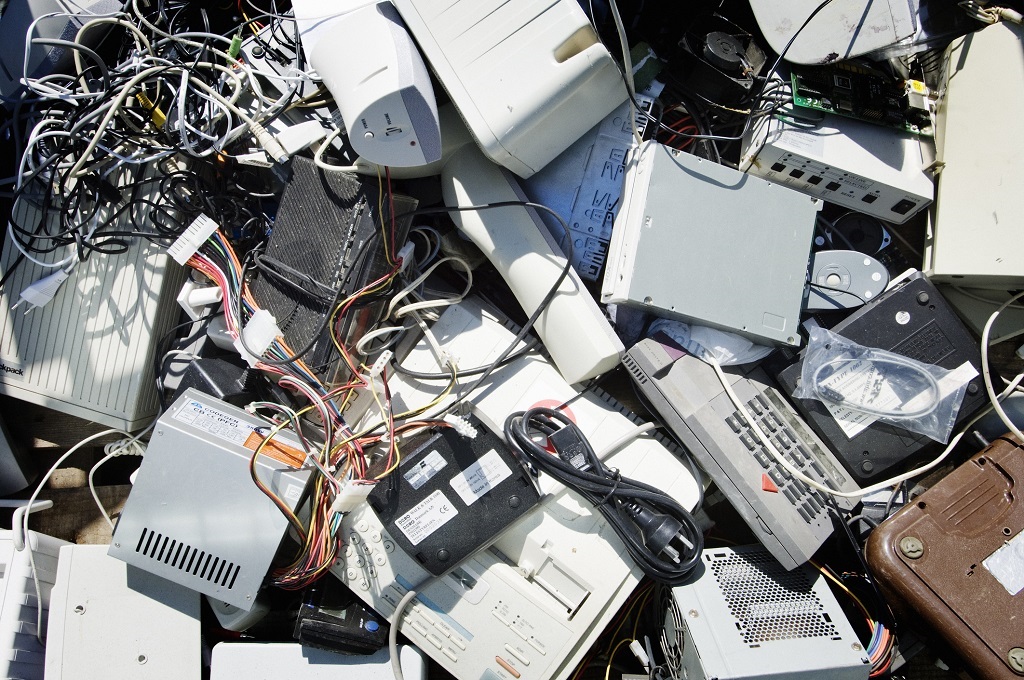
With society on the brink of the sixth industrial revolution, striking a balance between e-waste and sustainability is expected to become a herculean task, writes Natalie Scott.
- For climate change news and analysis, go to News24 Climate Future.
Approximately 53.6 million tonnes of electrical and electronic waste products (e-waste) were generated globally in 2019, according to a study by the United Nations University.
This number is expected to rise to approximately 74.7 million tonnes by 2030 due to increased demands for electrical and electronic products, shorter lifecycles of these products and limited options to repair them once broken.
With society on the brink of the sixth industrial revolution, characterised by a rise in artificial intelligence, automation and efficiency, striking a balance between e-waste and sustainability is expected to become a herculean task.
E-waste poses various sustainability-related challenges.
One of the biggest challenges related to e-waste is the immense environmental impact thereof because it contains hazardous materials that are toxic. These include lead, nickel barium, lithium and chromium. Once they are released into the environment - they may result in amongst others - illnesses, kidney damage and blood toxicity in humans.
The hazardous material in e-waste is likely to seep into groundwater, affecting both land and seawater, which in turn adversely affects not only land and sea ecosystems but also our access to natural drinking water.
READ | Cameroon's electronic waste recyclers struggle despite historic law
In addition to these environmental impacts, e-waste also releases toxic chemicals into the air when heated, which contributes significantly to greenhouse gas emissions.
The lack of responsible e-waste recycling and so-called "e-waste hoarding" presents secondary environmental pressures. The materials that comprise e-waste (such as non-renewable minerals like copper, lithium, silver and gold) are not recycled and require manufacturers to procure these minerals. This places pressure on the mining industry to provide a constant supply.
Social impact
The World Health Organisation (WHO), in its 2021 report titled Children and digital dumpsites: e-waste exposure and children health, estimated that approximately 12.9 million women work in the informal waste sector, which may expose these women and their unborn children to the toxic effects of e-waste.
In addition, the WHO noted that approximately 18 million children and adolescents either actively engage in informal waste processing or live, play or go to school near e-waste recycling centres.
The social implications of e-waste, therefore, will place immense pressure on the healthcare sector as people, especially children, who are exposed to toxic e-waste may develop various illnesses related to lung function and other chronic diseases, the WHO warned.
READ | Turning waste to gold: Transforming wastewater, solid waste into sustainable solutions
Good corporate governance and companies that strive to incorporate "sustainable technology" production and disposal may alleviate the surge in e-waste generation.
The increased global demand for electronic products places the companies that produce these products in an ideal position to address the risks associated with e-waste. Some of the strategies that manufacturing companies may use include streamlining the design and manufacturing process to develop longer-lasting electronic products, using renewable energy sources for manufacturing electronic products, promoting responsible disposal of e-waste and using environmentally friendly packaging.
Further, manufacturing companies may elect to comply with the King IV report, which places a higher standard on the directors and shareholders of such companies to comply with good corporate governance in the interest of the company, its employees and the communities within which it operates.
The implications of e-waste on the environment and society by the manufacturers of electronic devices are increasingly evident, and in the absence of legislation that makes it untenable for companies and society to dispose of e-waste irresponsibly, the transition to net-zero emissions by 2050 will be but a pipe dream.
Natalie Scott is head of sustainability at Werksmans Attorneys.
News24 encourages freedom of speech and the expression of diverse views. The views of columnists published on News24 are therefore their own and do not necessarily represent the views of News24.




 Publications
Publications
 Partners
Partners












